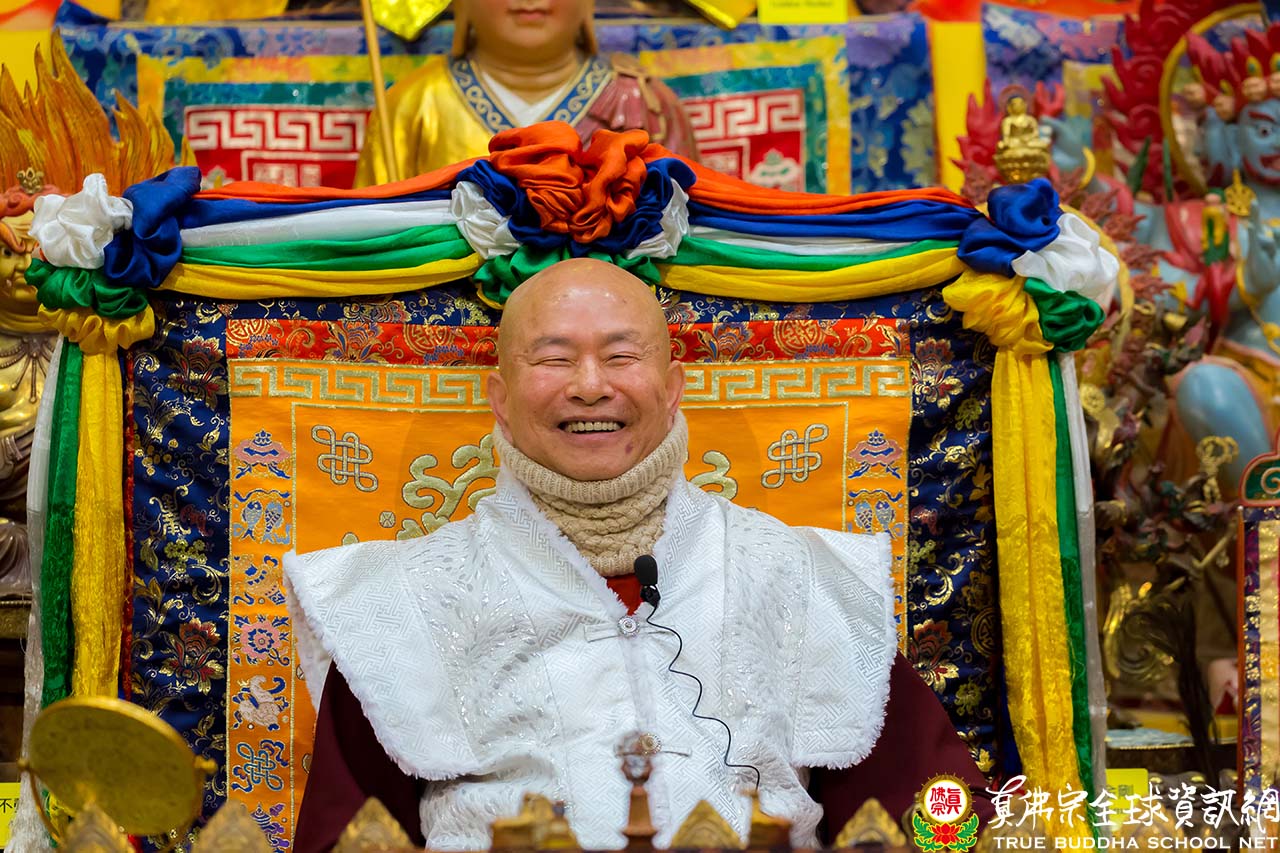
Vajracchedika Prajnaparamita Sutra
Vajra Sutra (Diamond Sutra)
Detailed Exposition by Living Buddha Lian-Sheng, Grandmaster Sheng-Yen Lu
Translated into English by True Buddha School Vajra Sutra Translation Team
Fourteen—Extinction Upon Abandoning Phenomena
Subhuti understood its profundity upon hearing this sutra and was moved to tears. He said to the Buddha, “World-honored One, it is rare indeed for the Buddha to speak on such a profound sutra. I have never heard of such a sutra ever since I attained my wisdom eyes.
“World-honored One, if someone generates pure faith upon hearing this sutra, they will give rise to real phenomena. This person will obtain the rarest of merits.
“World-honored One, the real phenomena are non-phenomena. Therefore, the Tathagata named it real phenomena.
“World-honored One, it is easy for me to believe, comprehend, accept, and uphold this sutra immediately upon hearing it. However, in the ensuing five hundred years, it would be most rare for sentient beings to hear, believe, understand, accept, and uphold the sutra. Why? Because [it is extremely rare for] a person not to have any view of self, others, sentient beings, and lifespan. The phenomena of self is non-phenomena, and so are the phenomena of others, the phenomena of sentient beings, and the phenomena of lifespan; they are all non-phenomena. Why? [Only] those who abandon all phenomena are called buddhas.”
The Buddha told Subhuti, “Just so, just so, Subhuti! If there is a person who is not shocked, frightened nor fearful upon hearing this sutra, it is extremely rare indeed! Why? Subhuti, the Tathagata said that the first and foremost paramita is not the first and foremost paramita; it is [merely] named the first and foremost paramita.
Subhuti, the Tathagata said that endurance paramita is not endurance paramita; it is [merely] named endurance paramita. Why? Subhuti, in the past, when King Kalinga dismembered my body, I was [in the state of] non-phenomena of self, others, sentient beings, and lifespan. Why? Because if I had the notion of self, others, sentient beings, and lifespan during the dismembering of my limbs, I would have felt hatred.
“Subhuti! Also, think of the sages who have practiced endurance for the past five hundred lifetimes, wherein each lifetime, they have no phenomena of self, others, sentient beings, and lifespan.
“Therefore, Subhuti, a bodhisattva should abandon all phenomena, generate the mind of anuttara samyaksambodhi, and give rise to the mind which does not dwell on sight, sound, smell, taste, touch, or anything at all. Even if the mind dwells on something, it is regarded as non-dwelling.
“Therefore, the Buddha said that a bodhisattva should not dwell on form when he performs the acts of giving. Subhuti! A bodhisattva should perform the acts of giving to benefit all sentient beings. The Tathagata said, ‘All phenomena are non-phenomena. Also, all sentient beings are not sentient beings.’ Subhuti, the Tathagata speaks truthfully, realistically, accordingly, credibly, and absolutely.
“Subhuti, all the dharma [anything] obtained by the Tathagata are neither real nor false. Subhuti, if a bodhisattva dwells on anything while performing acts of giving, it is as if he is in the dark; he will not see anything. If a bodhisattva does not dwell on anything when performing acts of giving, he is not blinded and will be able to see all sorts of forms as if the sun is shining.
“Subhuti! In future lives, should there be good men and good women who can accept and uphold, read or recite this sutra, they will be known and seen by the Tathagata through his wisdom, and they will attain vast and boundless merits.”
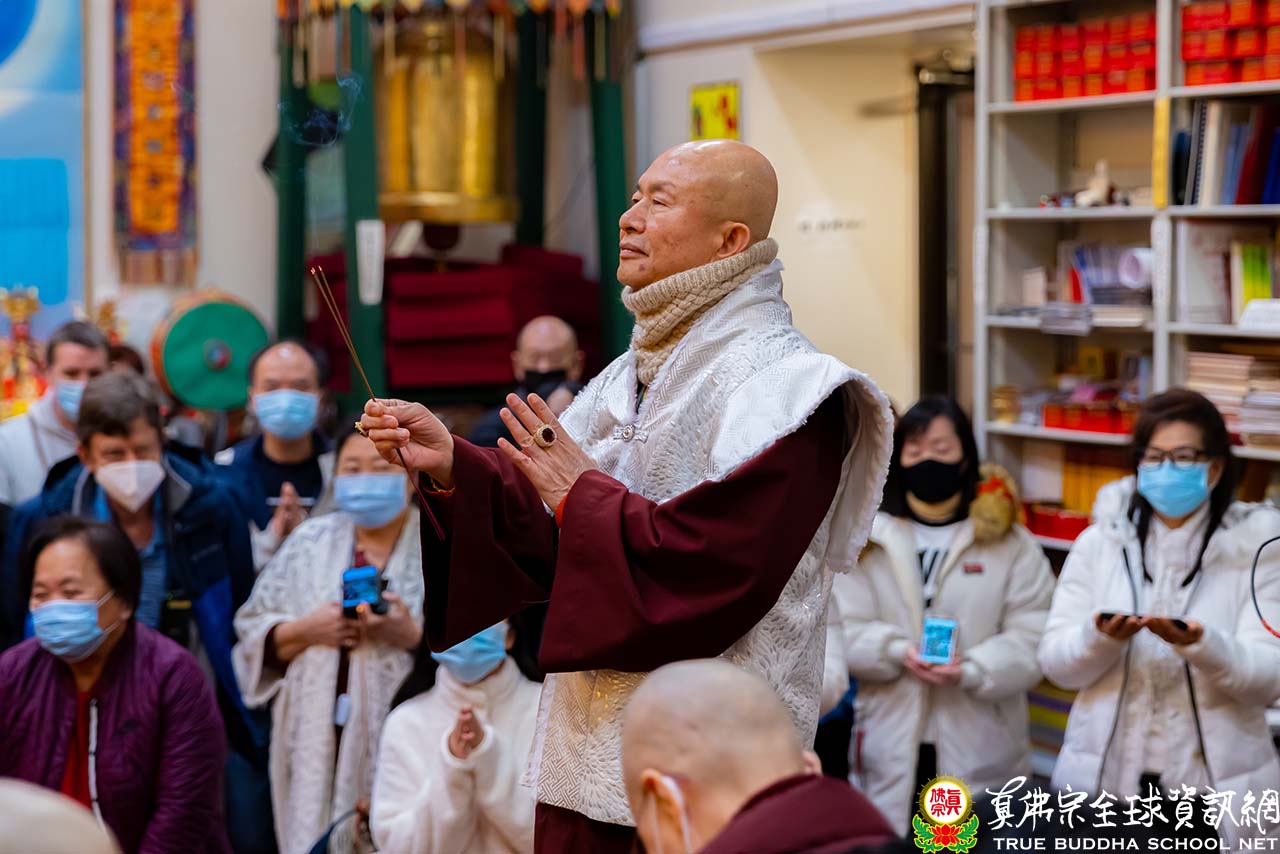
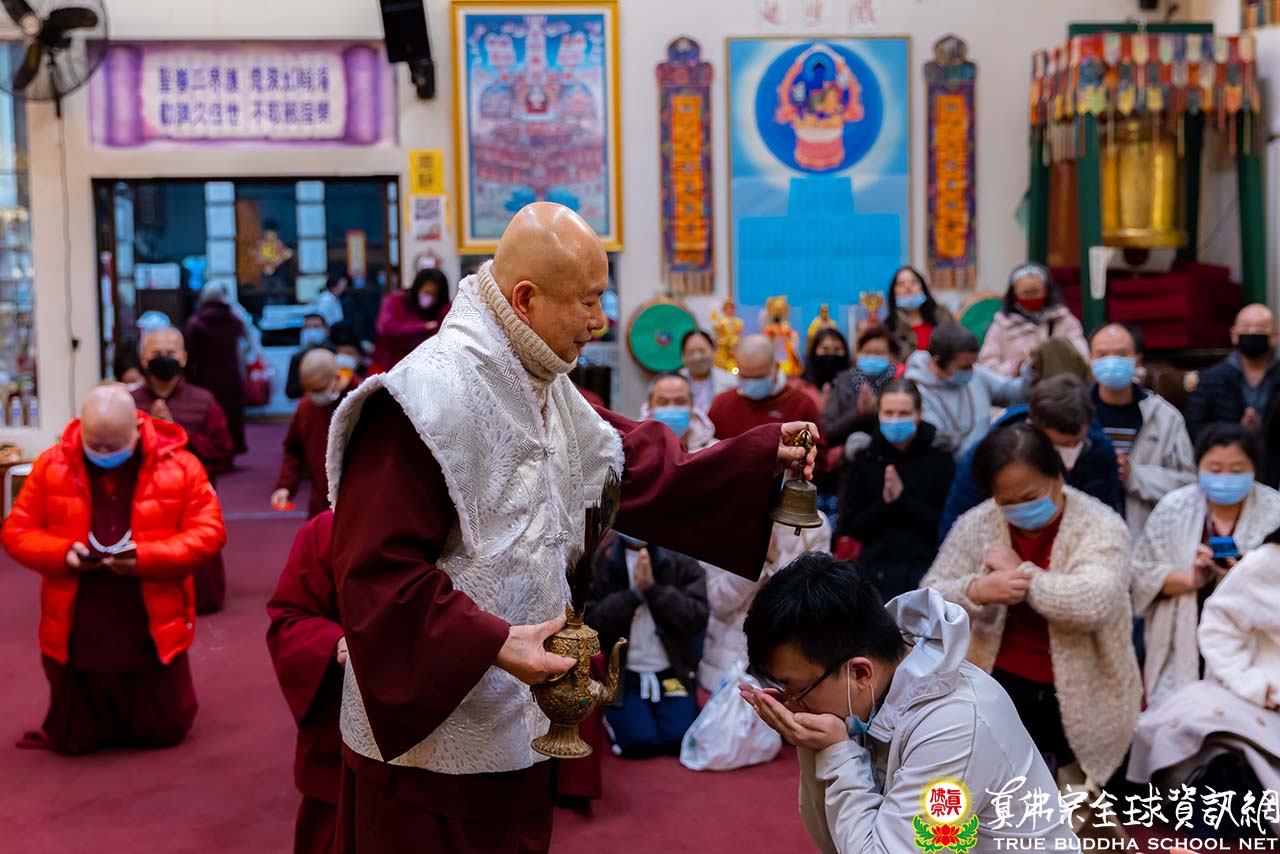
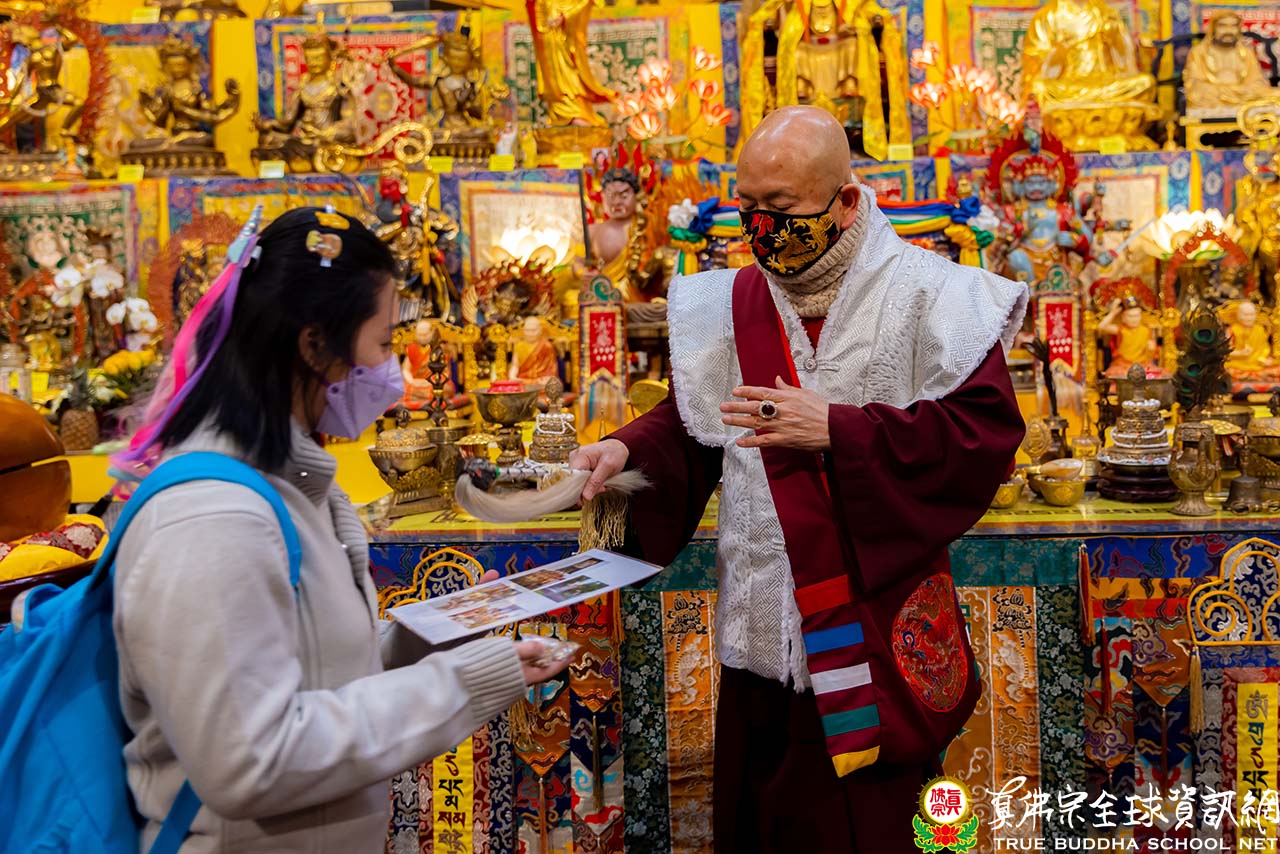
Now, we will expound the Vajra Sutra. Subhuti, the Tathagata said that endurance paramita is not endurance paramita, it is [merely] named endurance paramita. Why?
Obviously, endurance paramita—the highest kind of endurance—is not endurance paramita. It is because one holds no notion of self. If there is no self, who is there to endure? [There is no one to endure and] there is no such thing as enduring. If there is no phenomena of self, others, sentient beings, and lifespan, then what is there to endure? There is no such thing as endurance, therefore, endurance paramita is not endurance paramita, it is [merely] named endurance paramita. Endurance is one of the six paramitas to train you to endure all kinds of insults in order to reach the other shore of liberation.
Why is it not endurance? Because there is no phenomena of self, others, sentient beings, and lifespan. I often give an analogy of the moon. On the moon, is there any need to endure? There is nobody to berate you, nobody is being berated, and there is no such thing as a berating. So, what is there to endure? There is no enduring and no endurance needed.
Recognize the non-phenomena of self, others, sentient beings, and lifespan. If you have made yourself completely empty, you do not need to endure. Whatever rebuke people give you would be like “the east wind blowing in a horse’s ear.” It goes in one ear and out the other. Don’t take it to heart! Since there is nothing to endure, that is endurance paramita.
This is a simple explanation of the statement, Subhuti, the Tathagata said that endurance paramita is not endurance paramita, it is [merely] named endurance paramita. There is nothing to endure if you do not keep it in mind or take it to heart. What is there to endure? If you cannot endure, it means you still have the phenomena of self. If you hear humiliating things about yourself and thus fly into a rage, “I am going to kill you!” [that means you still have the phenomena of self]. [chuckles] You cannot stand the slightest insults. C’mon, learn from the Vajra Sutra!
You must understand that not enduring is the [real] endurance! You might have recited the Vajra Sutra many times, yet do you understand? When you have no phenomena of self, others, sentient beings, and lifespan, what is there to endure? There is nothing to endure. When you empty yourself, there is no more self. Whatever reprimands you receive cannot affect you. Only the crude and scum would curse and beat others. There is no need to do so when there is no self. Nothing exists, right?
The endurance paramita was spoken by Sakyamuni Buddha. I have explained it clearly. If the person doing the scolding is non-existent; if the person being scolded is also non-existent; and the scold itself is non-existent; then what is there to endure? This is the endurance paramita. If you understand the Vajra Sutra, you would know that nothing matters! Let it be! It is up to you! It is okay… No matter how others treat you, you will not take it seriously and it will not affect you. If someone mocks you, just let them mock. It is okay. You will not die from it, right? As long as there is no physical violence involved. “A gentleman only moves his mouth and not his hands.”
Why? Subhuti, in the past when my body was disembodied by King Kalinga, I was [in the state of] non-phenomena of self, others, sentient beings, and lifespan. Why? Because if I had the notion of self, others, sentient beings, and lifespan during the dismembering of my limbs, I would have felt hatred.
Feeling hatred is a matter of course for most ordinary people, as this [dismembering of limbs] is certainly too much suffering to endure. Sakyamuni Buddha was a sage of endurance in his early past lives. He mastered the perfection of endurance. A sage is someone who has attainments. On one occasion, as he was speaking on the dharma, four of King Kalinga’s concubines came to listen. Coincidentally, the king saw the sage happily preaching to his beloved concubines with their palms joined respectfully and attentively listening to this unfamiliar man. He raged with jealousy, thinking that his concubines never treated him with such respect. The raging king ordered to capture the sage and to chop off his fingers, hands, arms and legs piece by piece and to gouge his eyes. That is what is written in the sutra.
In the past when my body was disembodied by King Kalinga, I was [in the state of] non-phenomena of self, others, sentient beings, and lifespan. Why? Because if I had the notion of self, others, sentient beings, and lifespan during the dismembering of my limbs, I would have felt hatred.
When Jesus Christ was crucified on the cross, did he feel hatred? If he did, then he would not have been Jesus! How excruciating it is to be crucified! Both hands and feet were nailed to the cross with sharp, piercing nails while blood gushed from the wounds. Was it awfully painful? Excruciatingly painful! Jesus was crucified in this way. This is similar to Sakyamuni Buddha’s torment when he was a sage of endurance. Did he have hatred in his heart when his body was chopped off piece by piece by King Kalinga just because he was giving dharma teaching? [No.] You can relate Jesus Christ with Sakyamuni Buddha. The Buddha’s body was cut off piece by piece!!
[Just imagine,] when a blade cuts your fingers, even if just halfway, how painful that would be! How about cutting off your ears? Or your nose? Will you feel hatred in your heart if that is done to you? Will you get angry? [Someone shook her head.] No? Really? Just try it first... How about you try to get your pinky chopped? Just a section of it? [joking] People in this world will not be able to bear it. Grandmaster too cannot take it.
One time, I pushed open a door with a tight spring. I pushed hard and before I could retreat my fingers, the door sprung back and jammed my fingers in between the door and the frame. I screamed, “Aaargh!” Was there anger in my heart? I did not want to curse out loud, but in my heart, I still swore. [chuckles] Who made such a tight door?! It bruised my fingers. How could it not be painful? It made me mad and I grumbled, “Who did that?!” So grudges still appeared in my heart. That is because there was still the phenomena of self.
Both Sakyamuni Buddha and Jesus Christ have equally mastered the endurance paramita. It was when Sakyamuni Buddha was dismembered by King Kalinga and when Jesus was crucified. They were truly remarkable.
If I had the notion of self, others, sentient beings, and lifespan, I would have felt hatred. Of course, there will be [hatred and] resentment for most people with a notion of self. Most people in the world have the phenomena of self. You should strive to be like Sakyamuni Buddha who reached the realm of no phenomena of self, others, sentient beings, and lifespan. To have limbs chopped off, eyes gouged, ears cut off, or the entire body ground… Well, it really is hard for me to believe that anyone can withstand all that!
But a sage is different! The Buddha is a mahasiddha and an enlightened being with no phenomena of self, others, sentient beings, and lifespan. He is an enlightened being, a sage!
Buddhist practitioners must remember this: if you cannot even endure a small adversity, how could you endure greater sufferings? Once you are angry and hateful, you have generated karma and would fall into the three lower realms. There would be revenge. When reincarnated, you would become enemies. It would be horrible.
The Vajra Sutra really is a superior and a truly great sutra. Of the four-line verse, once you can master even only the non-phenomena of self, you would have already reached the other shore of liberation. You would have attainment by then. However, it is not easy. Not easy at all!
Think about it! It really is not easy! Can you be like the sage of endurance, having your body chopped off piece by piece and not have any resentment in your heart whatsoever? Was Jesus spiteful of his crucifixion? No, because he willingly sacrificed himself to atone the sins of the world. Therefore, anger and animosity had never arisen in him. This is why he was “Jesus Christ”, the king of all kings! It is the same with Sakyamuni Buddha. There are similarities between them. Before Jesus was nailed to the cross, he had already forgiven those who crucified him. Jesus prayed to God, “Father, forgive them, for they know not what they do.” This is my teaching on this Christmas day.
Had it been an ordinary being, he would have cursed with vengeance throughout the ordeal. He would have hatefully cursed Pontius Pilate (the Roman prefect of that area): “How dare you crucify me? Who are you to do this to me? I am Jesus Christ! I will end you—game over! Not only will I make you dead, but also your parents, your siblings and your whole clan.” For ordinary beings to be crucified, just imagine how much hatred they would have? For ordinary beings, if their nose, ears, and fingers were to be chopped off, just imagine how deep their hatred would be?
The sutra did say that these things should have caused hatred. However, no hatred is ever arisen because of the non-phenomena of self, others, sentient beings, and lifespan. Although it was indeed painful when the Buddha’s body was being chopped he was mindful of the four non-phenomena. My body is not mine, [since there is] “no self”. Even when I let you cut my body, you cannot cut [affect] me. There is no person cutting me so there is no one to hate, which means there is “no phenomena of others.” Space and time are non-existent even though I let you cut my body, which shows “no phenomena of sentient beings” and “no phenomena of lifespan.”
This is the reason why Buddhism teaches to not kill. Because if you kill… My mother used to chant this when she killed chickens, “chicken, chicken, your life is endless suffering; Let me help you get a new life.” Cut! Why do we recite this? Because life as a chicken or a bird has no end, so we help them reincarnate sooner. That is what it means.
For disciples who open restaurants, remember, when fish and animals are killed for your business, you need to bardo deliver them so that no hatred is generated. Otherwise, they will become your nemesis in future reincarnations. You must visualize the fish or animals regaining their forms and rising to the sky. Visualize your yidam guiding them to be reborn in the pureland. Afterwards, chant the Sukhavati Vyuha Dharani [Amitabha Rebirth Mantra]
“Na-mo a-mi-doh-poh-ye, doh-ta-ga-doh-ye, doh-deh-ye-ta, a-mi-lee-doh-poh-pee, a-mi-lee-doh she-den-poh-pee, a-mi-lee-doh pek-ga-lan-deh, a-mi-lee-doh pek-ga-lan-doh, ga-mee-nee, ka-ka-nah, zhi-doh-ka-lee, so-ha”
or Manjusri Rebirth Mantra “Om ah-bei-la-hum kan-cha-la so-ha.”
You should chant the rebirth mantra and visualize. By the power of mantra, you bardo deliver them. Many Asians in the west are in the restaurant business which involves a lot of killings. It is important for them to chant mantras at all times. It is the same with us. Before we eat, we need to do a bardo deliverance and make offering first. Not to kill! But if you must kill, then you must do this! Otherwise, they have vengeance against you and when they are reborn, they will become your enemy.
In the past when my body was disembodied by King Kalinga, I was [in the state of] non-phenomena of self, others, sentient beings, and lifespan. Why? Because if I had the notion of self, others, sentient beings, and lifespan during the dismembering of my limbs, I would have felt hatred.
Subhuti! Also, think of the sages who have practiced endurance for the past five hundred lifetimes, where in each lifetime, they have no phenomena of self, others, sentient beings, and lifespan. Therefore, Subhuti, a bodhisattva should abandon all phenomena, generate the mind of anuttara samyaksambodhi…
We will talk about this part tomorrow.
For now let’s finish off the part about I would have felt hatred. It is expected that ordinary people would feel hatred or animosities. But spiritual cultivators, even when scorned, will stay unaffected. Ever since Grandmaster started teaching the dharma, I have been defamed endlessly. During those times, there were even people who wanted to murder me. Luckily, the bodhisattvas saved me. They set a certain ransom price for Grandmaster’s eyes and a certain price for cutting off my writing arm. At the time, I did not realize how horrendous it was; I only found out later. It was terrifying, to say the least!
It is easier just to be a commoner, but not so when you become renowned. When I started to gain recognition in my writing career, I was reprimanded by many people all over. I could not stand it then too. At the time, I had not cultivated as well as Sakyamuni Buddha, who has no phenomena of self, others, sentient beings, and lifespan. During those times, I still had a phenomena of self. I even wrote The Fiery Temper of a Clay Bodhisattva and Wrathful Vajra Eyes. How could a clay bodhisattva have a temper? Actually, it was my own temper! Hah~ As for the book Wrathful Vajra Eyes, if I still represented myself as a heruka, attainment would be out of reach. Now, I understand.
I am now better cultivated, slightly better. It takes time. Our spiritual cultivation of the non-phenomena of self is gradual and cannot be rushed! If you suddenly become no-self, then you could be beaten to death! [chuckles] In short, we should strive towards attaining non-phenomena of self.
Om mani padme hum.
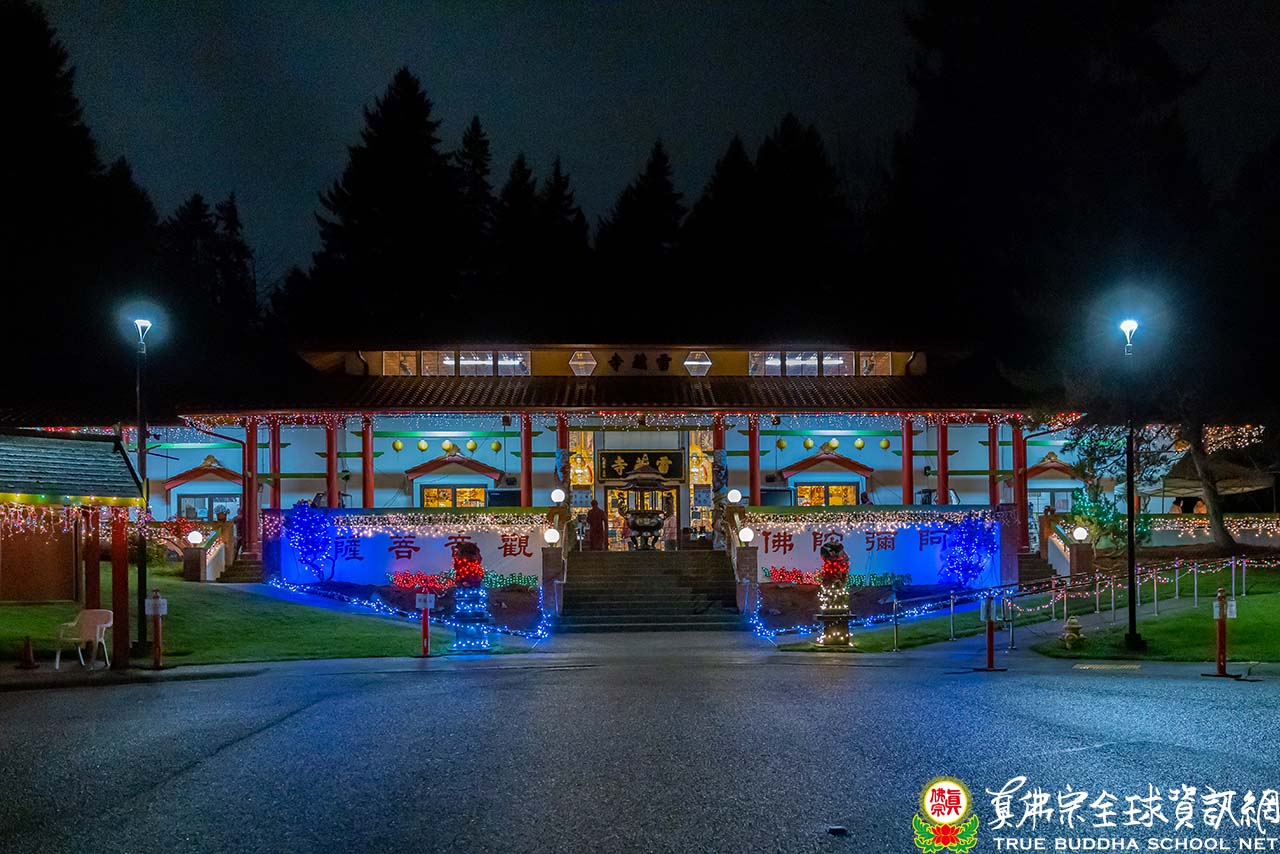
Next discourse on the Vajra Sutra: Discourse 45, 26 December 2021 - Chapter Fourteen—Extinction Upon Abandoning Phenomena (continued)
Previous discourse on the Vajra Sutra: Discourse 43, 19 December 2021 - Chapter Fourteen—Extinction Upon Abandoning Phenomena (continued)
Index of links to all discourse on the Vajra Sutra: https://en.tbsn.org/guidem/detail/2265/
Back to the main index page of all dharma discourse: https://en.tbsn.org/guidem/index
Full webcast of 2021.12.25 Padmakumara Group Practice (Ling Shen Ching Tze Temple, Redmond, USA) and dharma discourse with English interpretation: https://youtu.be/pfDjdqbRttg



